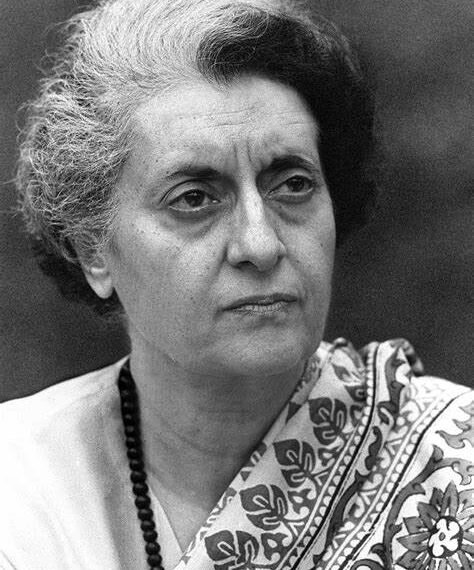Sachin Pilot and Jairam Ramesh lead Congress’ charge, questioning India’s silence on US-led mediation and abstention from IMF vote, contrasting it with Gandhi’s decisive diplomacy.
BY PC Bureau
New Delhi, May 11, 2025 — In the wake of a U.S.-brokered ceasefire between India and Pakistan and the International Monetary Fund’s (IMF) $1 billion bailout for Pakistan, the Indian National Congress has invoked the legacy of former Prime Minister Indira Gandhi to challenge the Modi government’s diplomatic handling of recent events.
Across social media and press statements, Congress leaders—led by figures like Jairam Ramesh and Sachin Pilot—have drawn sharp contrasts between Gandhi’s decisive actions during the 1971 Indo-Pak war and what they describe as the Modi government’s passive approach to Pakistan’s IMF relief and the ceasefire deal.
Ceasefire Sparks a Political Flashpoint
The ceasefire, announced on May 10 and first disclosed by U.S. President Donald Trump, followed days of intense cross-border shelling after India launched Operation Sindoor in response to a terror attack in Pahalgam that left 26 civilians dead.
Congress was quick to seize the moment. Its official X account shared a photo of Indira Gandhi with Indian soldiers captioned: “COURAGE | CONVICTION | STRENGTH.” The party framed the post as a pointed contrast to what it calls Prime Minister Narendra Modi’s failure to defend India’s interests in the face of American mediation.
Party spokespersons including Pawan Khera and Shama Mohamed reinforced the message. “India misses Indira,” Khera posted. Mohamed highlighted Gandhi’s defiance during the 1971 war, asserting: “Pakistan was split into two despite U.S. threats. That’s what leadership looked like.”
Criticism of IMF Bailout to Pakistan
On May 9, the IMF approved a $1 billion Extended Fund Facility (EFF) for Pakistan. India abstained from voting. Congress saw this as another failure of diplomacy.
Jairam Ramesh criticized the Modi government for not opposing the bailout, citing Gandhi’s ability to secure a $5.8 billion IMF loan in 1981 despite U.S. objections—an achievement India completed without drawing the full amount. “Indira Gandhi negotiated tough. This government remained silent,” Ramesh posted.
ALSO READ: Rahul, Kharge Push PM Modi to Explain Ceasefire Deal
The Congress’ Kerala unit also joined the offensive, posting: “Remember the name — Indira Gandhi.”
Sachin Pilot Steps Up the Attack
Sachin Pilot emerged as a prominent voice, accusing the Modi government of compromising national sovereignty. “It is unprecedented that the U.S. announced a ceasefire on behalf of both countries,” he said at an AICC press conference.
शक्ति और साहस ✊ pic.twitter.com/farK897y7P
— Congress (@INCIndia) May 11, 2025
Pilot questioned whether India had agreed to third-party mediation and demanded transparency on the ceasefire terms. “No third-party mediation will be accepted. Is the Simla Agreement now void?” he asked, referencing U.S. Secretary of State Marco Rubio’s mention of a “neutral site” for India-Pakistan talks.
Regarding the IMF bailout, Pilot argued that the ceasefire and financial assistance reflected a broader erosion of India’s diplomatic leverage. “In 1971, the U.S. deployed the Seventh Fleet, yet Indira Gandhi did what was in India’s interest. Where is that resolve today?”
ALSO READ: Congress Calls for All-Party Meet After Trump Mediation Talks on Kashmir
He called for an all-party meeting and a special session of Parliament to address the ceasefire, Pakistan’s credibility, and the IMF vote.
While most Congress leaders endorsed the Gandhi comparison, senior MP Shashi Tharoor struck a more measured tone. “1971 and 2025 are not the same. The ceasefire may have been necessary to prevent further escalation,” he said, suggesting internal differences on how far the analogy with Indira Gandhi should go.
By resurrecting Indira Gandhi’s image as a bold, independent leader, the Congress has crafted a strategic counter-narrative to challenge the Modi government on foreign policy. Through curated posts, historical references, and press statements, the party paints a contrast between Gandhi’s assertiveness and what it frames as Modi’s diplomatic timidity—especially in the face of American influence.
Whether this campaign resonates with voters remains to be seen. But one thing is clear: Congress is betting that invoking the ghost of 1971 might give it renewed relevance in 2025.














